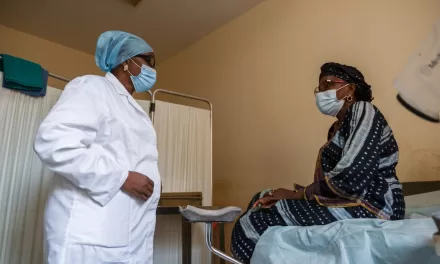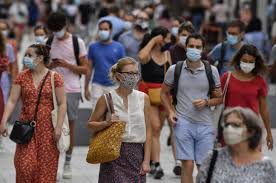Psychedelic drugs such as MDMA and psilocybin, the hallucinogenic compound found in magic mushrooms, have promised to revolutionize psychiatric treatments. Now, a small trial in military veterans suggests that a lesser-known, potent psychedelic drug called ibogaine could be used to treat traumatic brain injury (TBI). One month after ibogaine treatment, the veterans reported that TBI symptoms such as post-traumatic stress disorder (PTSD) and depression had decreased by more than 80%, on average.
“The drug seems to have a broad, dramatic and consistent effect,” says Nolan Williams, a neuroscientist at Stanford University in California and a co-author of the study. The results of the trial, which did not include a control group, are published today in Nature Medicine.
These data support launching rigorous trials to test the drug, says Alan Davis, a clinical psychologist at the Ohio State University in Columbus. However, they note that MDMA and psilocybin, which are already in late-stage trials, will be “much better candidates for meeting the needs of this community”. Ibogaine will require years of study to determine its efficacy and safety, Davis says.
Warfare’s lasting effects
Ibogaine is made from the bark of a shrub (Tabernanthe iboga) native to Central Africa, where it is used for ceremonial purposes. Researchers have tended to shy away from exploring the use of ibogaine for the treatment of conditions other than opioid dependence and withdrawal, because it is tightly regulated in many countries and can cause fatal heartbeat irregularities, says Maria Steenkamp, a clinical psychologist who studies PTSD in veterans at the NYU Grossman School of Medicine in New York City.

How psychedelic drugs achieve their potent health benefits
But the available therapies for PTSD and other conditions don’t help everybody, Steenkamp says. “We are desperately in need of new interventions.”
Williams had heard of veterans seeking out ibogaine for symptoms of TBI, which occurs when a sudden impact causes damage to the brain, and can cause a wide range of cognitive and physical symptoms. To systematically study the drug, Williams and his colleagues followed 30 male US veterans with TBI and repeated exposure to explosions or combat. All had, of their own accord, sought out ibogaine from a facility in Mexico, where use of the drug is not restricted.
Researchers played no part in the administration of the drug. Participants received a magnesium supplement alongside the psychedelic to lower the risk of cardiac side effects.
Symptom relief
The researchers found that one month after treatment, participants had average reductions of 88% in PTSD symptoms, 87% in depression symptoms and 81% in anxiety symptoms. On average, participants had mild-to-moderate disability before treatment and no disability one month after treatment, as assessed by a survey about their cognition, mobility and other functions.
None of the participants experienced cardiac side effects. The study is a “proof of concept” that proper screening and administration can lower the risk of harmful side effects, Steenkamp says. Williams and his colleagues are now looking to study whether the drug can confer a long-term benefit and are using neuroimaging and biomarkers to assess how the drug works.
Research in mice by Gül Dölen, a neuroscientist at the University of California, Berkeley, offers a clue: ibogaine might temporarily re-open a ‘critical period’, the name given to windows of time normally seen during early development in which the nervous system is particularly malleable. Dölen and her colleagues tested ibogaine and four other psychedelics in mice, and found that ibogaine was the “rockstar of the group”, keeping the critical period open for at least four weeks, compared with up to two weeks for psilocybin, she says.
doi: https://doi.org/10.1038/d41586-024-00012-z











